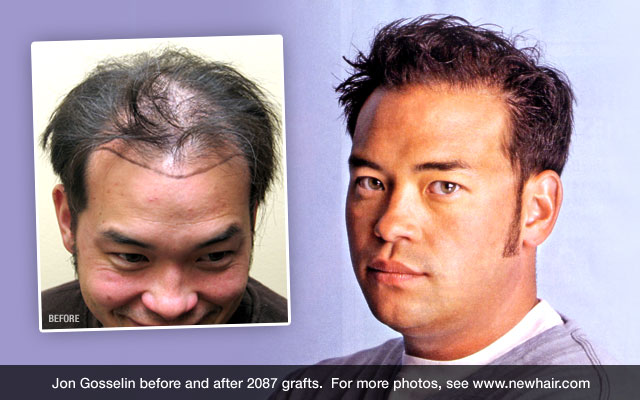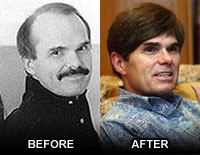This is a follow-up to Should I Avoid Surgeons That Use a Multi-Blade Scalpel?
Your explanation makes perfect sense to me, but what does the “other side†say? Surely, a surgeon who would use a multi-blade knife (even an 8 blade) has some justification for its use. He would also have to have a reason ready to give to prospective patients to justify his selection if asked about it.
If I went to Doctor X who is using an 8 blade scalpel, for example, and said to him “Doctor, with all due respect, why are you using that? Doesn’t it cause unnecessary damage?†I don’t think he would say “well, I use it to save time.†I’m sure he would have a valid reason, if only in his mind, of why it’s really better. Do you know why their camp thinks the multi-blades are better and choose to use them besides “saving time?â€
 The only reason to use a multi-bladed knife above 2 blades relates to the time efficiency of the work, the need for less well-trained technicians, and the surgeons ability to do more grafts with less staff. The real expense however, is in the damage done to the hair and the hair that is lost. There are no patient benefits when using an 8 bladed knife (for example) over visual dissection of the scalp under a high-powered microscope.
The only reason to use a multi-bladed knife above 2 blades relates to the time efficiency of the work, the need for less well-trained technicians, and the surgeons ability to do more grafts with less staff. The real expense however, is in the damage done to the hair and the hair that is lost. There are no patient benefits when using an 8 bladed knife (for example) over visual dissection of the scalp under a high-powered microscope.
One surgeon (about 15 years ago) presented a paper before the ISHRS which essentially was titled, “How to do 1500 grafts in under 10 minutes“. What I saw was akin to a sushi knife carving up the scalp with no respect for the hair. I asked myself if a ‘blender’ that I use to chop onions with would work as well? I would guess that the kill rate for hair exceeded 50% using this “method”. The surgeon was somehow content or fooled himself into believing that what he produced was quality grafts. I am afraid that the answer to your question is that there is no rational explanation for use of multi-bladed instruments unless there is some unique breakthrough.

 Everything I know about HairCubed has come from the site you referenced. In other words, I’ve never heard of it before. It looks like a spray on concealer, and I have no reason to doubt the validity of the video.
Everything I know about HairCubed has come from the site you referenced. In other words, I’ve never heard of it before. It looks like a spray on concealer, and I have no reason to doubt the validity of the video. The stomach will probably destroy the minoxidil when taken orally unless it was put into some compounds for oral ingestion. Minoxidil was originally on the market for blood pressure control many years ago, sold as a pill called Loniten… but for the best results as a hair loss treatment, topical is the way to go.
The stomach will probably destroy the minoxidil when taken orally unless it was put into some compounds for oral ingestion. Minoxidil was originally on the market for blood pressure control many years ago, sold as a pill called Loniten… but for the best results as a hair loss treatment, topical is the way to go. The story that everyone seems to be talking about lately in the entertainment world is about Jon Gosselin. I’ve got at least half a dozen magazines in my office lobby with his face on the cover. Last week, Life & Style Magazine even had a blurb about his hair transplant (
The story that everyone seems to be talking about lately in the entertainment world is about Jon Gosselin. I’ve got at least half a dozen magazines in my office lobby with his face on the cover. Last week, Life & Style Magazine even had a blurb about his hair transplant (
 Based on the photos you sent (which I’ve cropped and shown at right), author Dean Koontz’s hairstyle sure is shaped like a bad hairpiece… but that reflects personal taste and maybe it does the trick for him. I don’t know any details about his procedure so I couldn’t really guess as to what is actually going on there. Former Illinois state governor
Based on the photos you sent (which I’ve cropped and shown at right), author Dean Koontz’s hairstyle sure is shaped like a bad hairpiece… but that reflects personal taste and maybe it does the trick for him. I don’t know any details about his procedure so I couldn’t really guess as to what is actually going on there. Former Illinois state governor  I can not tell you what using Andractim (topical DHT gel) will do for your gynecomastia. This condition is common in boys of your age as the hormones your testicles produce along with other hormones are all over the place while you are maturing. I doubt that the topical medication will hurt you or make Propecia stop working, but I would not go along using it for too long without having your doctor examine you and determine just what is going on.
I can not tell you what using Andractim (topical DHT gel) will do for your gynecomastia. This condition is common in boys of your age as the hormones your testicles produce along with other hormones are all over the place while you are maturing. I doubt that the topical medication will hurt you or make Propecia stop working, but I would not go along using it for too long without having your doctor examine you and determine just what is going on.